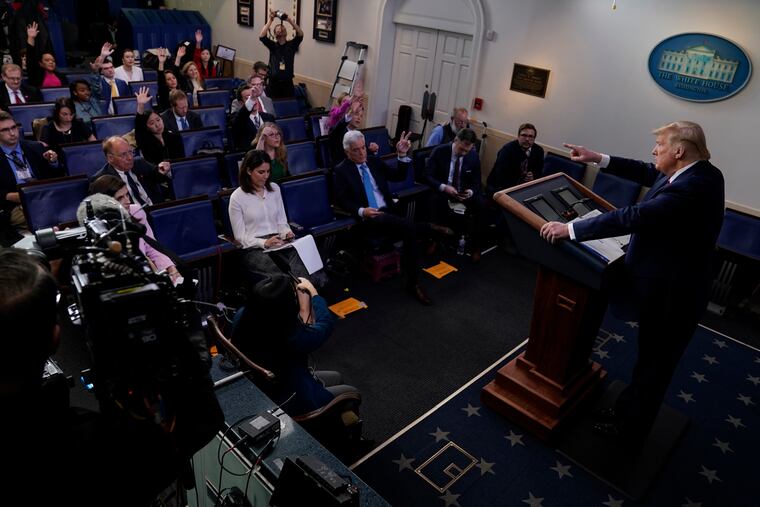Trump administration lets borrowers suspend federal student loan payments
For at least 60 days, the 42 million Americans holding $1.5 trillion in federal student debt can ask their loan servicer to temporarily postpone their payments.

A week after promising to waive interest on federal student loans, the Trump administration Friday said Americans contending with the economic fallout of the coronavirus pandemic can opt to suspend their payments altogether.
"These are anxious times, particularly for students and families whose educations, careers, and lives have been disrupted," Education Secretary Betsy DeVos said in a statement. "Right now, everyone should be focused on staying safe and healthy, not worrying about their student loan balance growing."
For at least 60 days, the 42 million Americans holding $1.5 trillion in federal student debt can ask their loan servicer to temporarily postpone their payments. Anyone more than 31 days behind on their bill as of March 13, or who becomes that delinquent, will have their payments automatically suspended.
All federal student borrowers, regardless of whether they choose to postpone their payments, will automatically have the interest on their loans set at zero for at least 60 days. The new interest rate will be retroactive to March 13. Any payments borrowers make will go strictly to the principal of their loans once all interest accrued before March 13 is paid.
People in public service jobs will have to think twice about postponing their payments. Opting out for two months will result in a longer path to debt cancellation for those working toward Public Service Loan Forgiveness. The federal program cancels the remaining balance of a borrower's debt after 120 on-time monthly payments, but postponing the bill will lengthen the process.
"We do not want COVID-19 disruptions to penalize borrowers who are on a pathway towards (Public Service Loan Forgiveness) or (Income-based) forgiveness. But it's pretty clear that the administration has gone as far as they can go, or are willing to go," said Justin Draeger, president of the National Association of Student Financial Aid Administrators. "So our attention is now turning towards Congress for further student borrower help."
The Education Department's announcement comes a day after congressional Democrats and Republicans issued competing student loan relief proposals.
Senate Majority Leader Mitch McConnell, R-Ky., released a stimulus package Thursday that would halt all payments on student loans for three months, with an additional three-month suspension at the secretary's discretion. The proposal would also ensure that students would not be forced to repay their federal loans if they leave school in the middle of the semester because of the coronavirus.
"This is a smart emergency policy that avoids blanket student loan forgiveness," said Lindsey Burke, director of the Heritage Foundation's Center for Education Policy. "Large-scale student loan forgiveness would be inappropriate and would place an additional burden on those who did not take out loans - the vast majority of taxpayers."
Burke, like other conservative higher education experts, takes a dim view of Senate Democrats' proposal of at least $10,000 in tax-free debt cancellation for all federal student loan borrowers.
Senate Minority Leader Charles Schumer, D-N.Y., floated the idea Thursday as part of a host of measures to help borrowers. Senate Democrats want the Education Department to assume loan payments for the duration of the national emergency and then institute a three-month grace period during which borrowers can forgo their payments without penalty. Payments made by the agency would still count toward loan forgiveness for borrowers in public service jobs.
Twenty civil rights, consumer and student groups have touted the Democrats’ proposal as a more forceful response to the economic fallout of the coronavirus pandemic and one that could deliver a much-needed stimulus. The liberal coalition, which includes the American Federation of Teachers, Demos and Americans for Financial Reform, estimates as many as one in three student loan borrowers will have their debts canceled under the proposal.